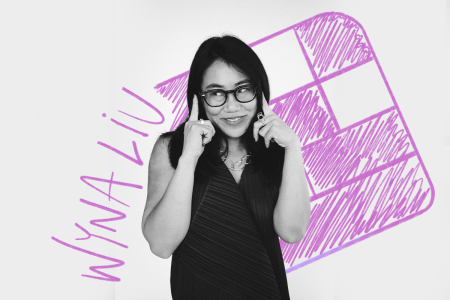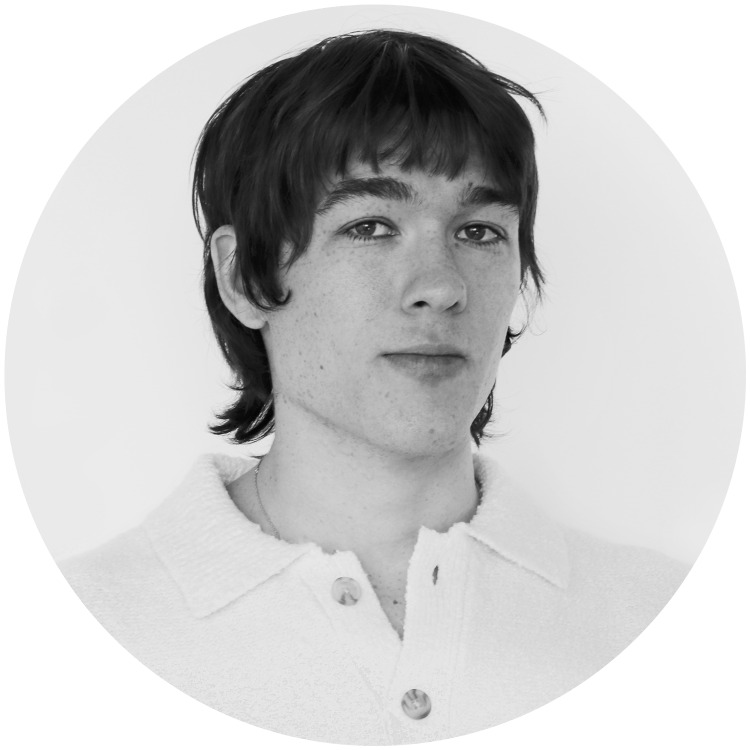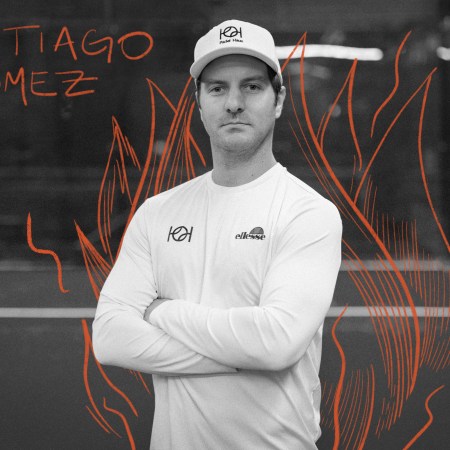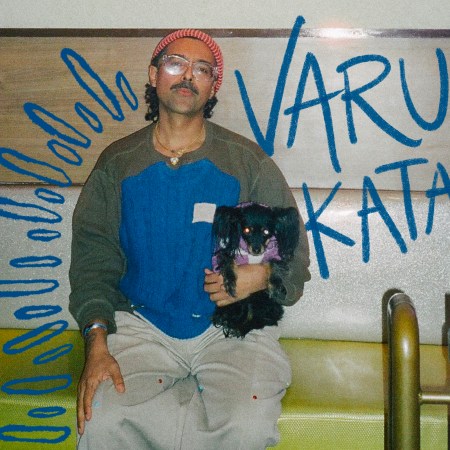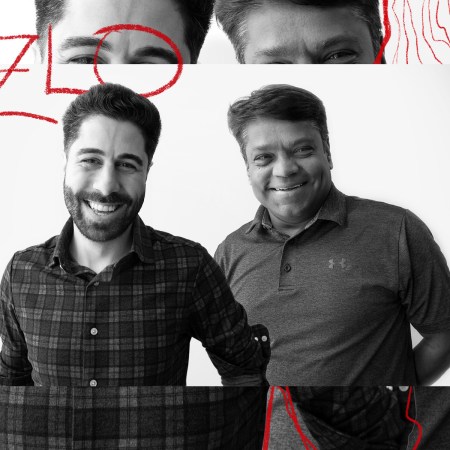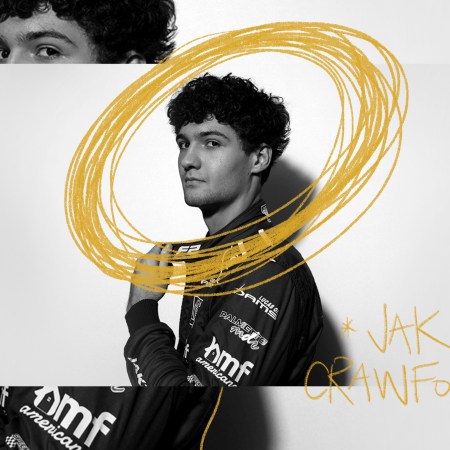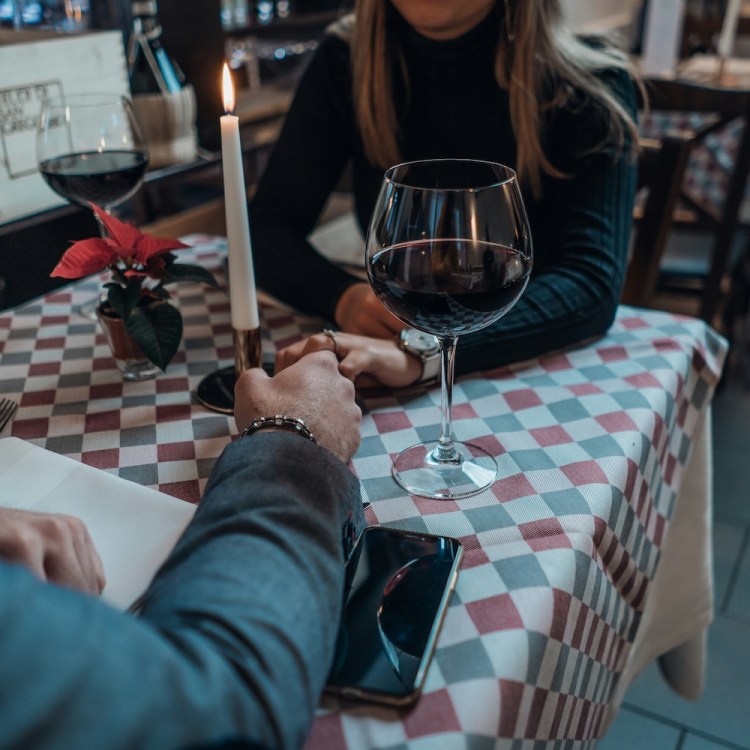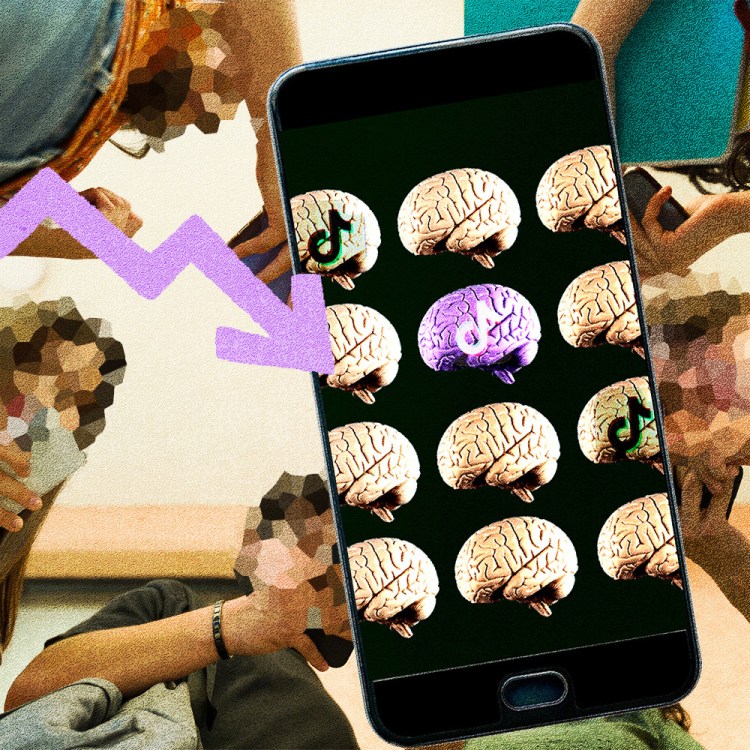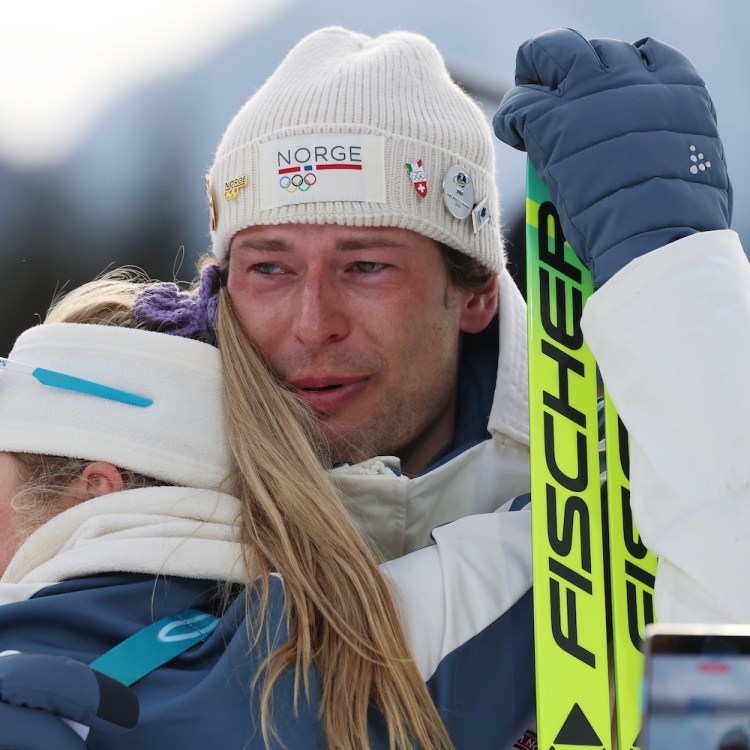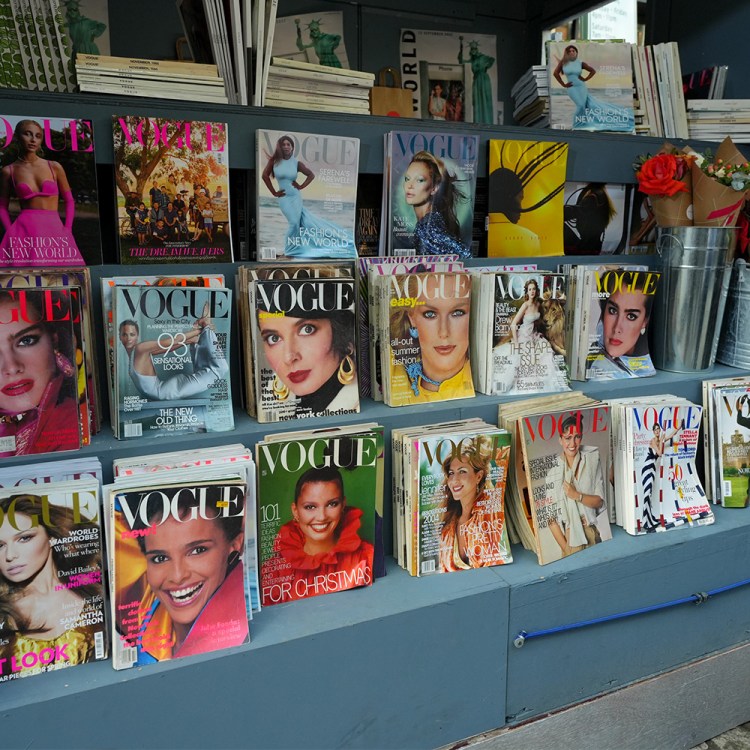
Want to know what the future holds? You need to meet the people building it. In our series Who’s Next, we profile rising stars of culture, tech, style, wellness and beyond.
Like any good interviewer, Sam Fragoso has a radar for bullshit that you would not believe. Less known, but apparent as we chatted on a gusty February afternoon in NYC, he has a sixth sense for bad tomato soup, too.
For fans of Talk Easy, this may come as a surprise. (The bullshit radar part.) The hit interview podcast, where Fragoso plays amiable host to a cast of film and culture luminaires for a free-flowing and emotionally-charged hour, is often lauded for its intimate conversations, an audio safe space built on Fragoso’s generosity of spirit and questions informed by profound levels of research.
Fragoso’s look — his dark, shoulder-length locks evoke a genial college TA — matches his vibe, but in person, there’s more of an edge to the guy than his meditative tenor and hoodie-backpack situation suggest. Or maybe the exact amount you’d expect, given his uncanny ability to open up seasoned industry veterans like a bag of popcorn.
Case in point: He’s unafraid to declare the aforementioned tomato-basil he orders disgusting. “Oh, no. Hell no. The fries are good.” And while he’s too polite to outright say it, I can tell he thinks one of my questions — about the challenges of growing a self-produced project into a charting podcast — is exasperating, if not outright dumb. “What would be the downside? I feel good about the show growing and glad that more people are finding it.”
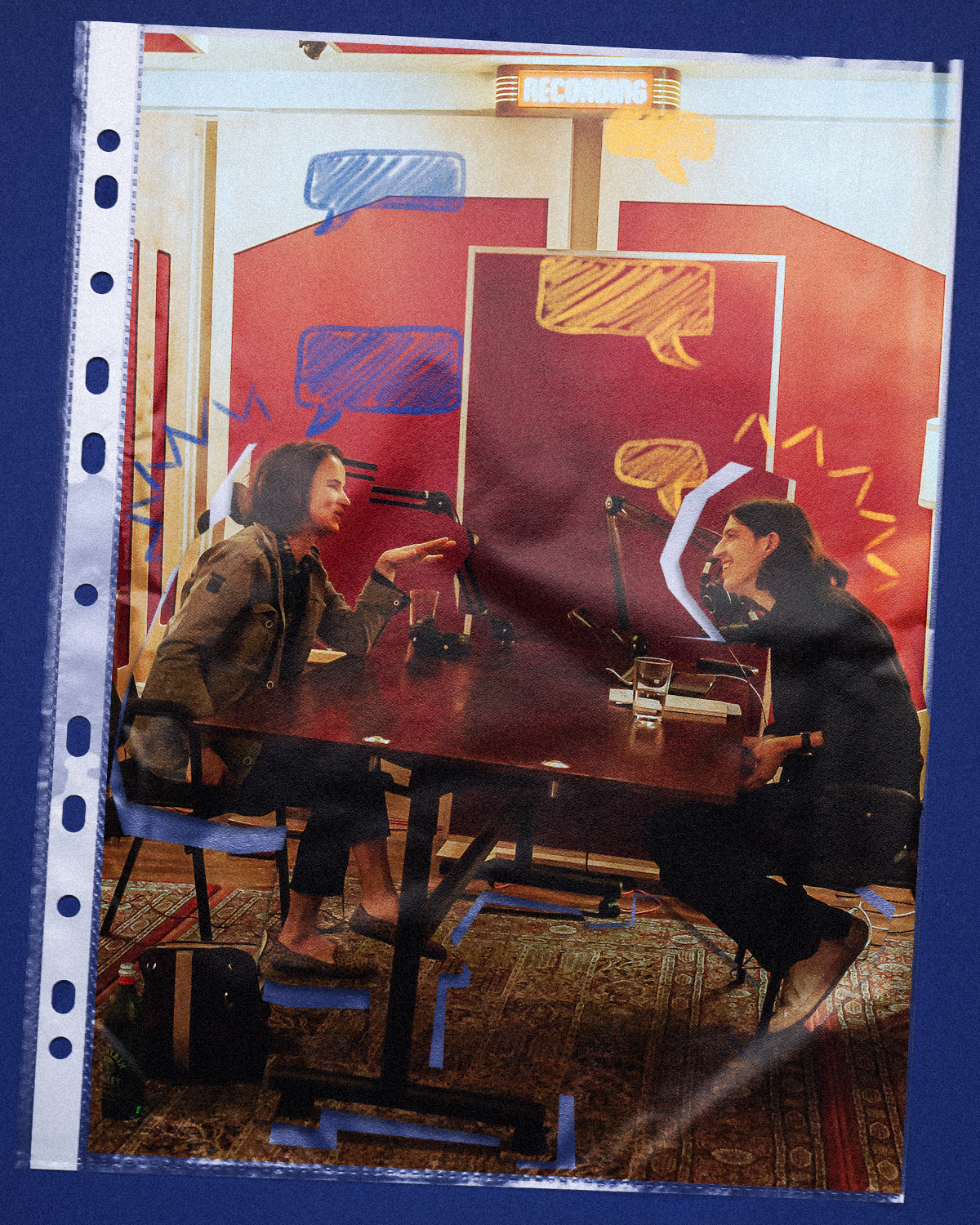
That’s not to say Fragoso is faking his magnanimity for the pod. The 30-year-old, Los Angeles-based podcaster, director and writer is a likable character, and a deft conversationalist, quick to self-deprecation and quicker to ask his own thoughtful questions. The more time I spend talking with him, the more I realize that he is just unabashedly, almost disarmingly honest.
“Life’s so hard,” he says. “There’s so much going on right now that’s so fucking painful. I just don’t want to waste people’s time.”
The latter is an idea he comes back to multiple times over the course of our conversation, an informal dogma that drives both Fragoso and Talk Easy. The end goal is simple: a hard-fought, well-researched interview that gives you something others can’t.
It’s these nuanced, wide-ranging, no-subject-off-limits conversations that makes Talk Easy stand out, even among the throngs of highly produced interview-style podcasts that have cropped up in recent years, productions that dwarf Fragoso’s staff and budget. Talk Easy episodes chart on Apple and Spotify. The five-star reviews are abundant. It has become a preferred pit stop for high-profile guests that have recently included Francis Ford Coppola and Best Actress winner Mikey Madison.
What if the guest doesn’t want to be there? Well, like most people listening, there are a lot of days at work where you don’t want to be there. Doesn’t mean you get to go home. Not every day is going to be great. I’ll meet them there.
– Sam Fragoso
The guests are encouraged to come open and willing. Fragoso has previously suggested that the highest compliment you can pay an interviewee is being prepared; he compares his research and editing process to the It’s Always Sunny in Philadelphia meme of Charlie Day’s conspiracy board.
He expects the same courtesy in return, a request harder to negotiate than you might imagine. Conversations that are detached from a calculated, supersized, media-trained press run are rare. Canned answers and pre-hashed interviews are now drafted by entire teams of PR personnel, something Fragoso is staunchly against. “People always ask, do guests get the questions in advance? Are there topics that are agreed to? No, but I’d like to believe that’s because we’ve established enough trust with the publicist that they wouldn’t ask. We operate in good faith.”
This is not to suggest that Talk Easy operates on a “gotcha” mentality. The point is simply to create a one-of-one experience. “I want people who come to the show to be glad that they did it,” Fragoso says. In return, the show promises something most cannot: the space to be completely honest. It’s something that he strives for in every interview, even for guests who aren’t quite attuned to the Talk Easy wavelength.
Fragoso is insistent that every interview is an opportunity for this type of end product. “No guest comes out bad,” he says. “What if the guest doesn’t want to be there? Well, like most people listening, there are a lot of days at work where you don’t want to be there. Doesn’t mean you get to go home. Not every day is going to be great. I’ll meet them there.”
The popularity of the show seems to come back to its ethos of genuine connection and radical openness. Being able to stimulate this environment is Fragoso’s gift, and his self-appointed duty, to the audience and the craft and the person sitting across from him.
“It’s ridiculous for us to assume that anyone in any social setting or interview setting is just going to be the best version of themselves,” he says. “That’s my job — to get the best version of themselves by way of questions and research and empathy and curiosity.”
Ebert Encouragement and Teenage Bylines
Fragoso’s aptitude for interviewing is a product of years of work that stretch back into his teens. After becoming enamored with online film journalism and criticism at an early age, he started to churn out reviews on internet forums, eventually founding the website Movie Mezzanine in January 2013. An impressive inventory of bylines followed, at institutions like Vanity Fair, The Atlantic and Vice, where he interviewed actors and filmmakers like Jesse Eisenberg and Michael Moore.
Fragoso cites a pivotal correspondence with the late Roger Ebert as a fundamental moment early in his precocious career. At the age of 17, he managed to get what he describes as “the worst business card ever created” into the legendary film critic’s hands at a local Illinois film festival; a few months later, Fragoso unexpectedly received a response.
Along with encouragement to keep writing, Ebert offered some sage advice: for Fragoso to stop telling people how old he was. He took the advice and ran with it, encouraged by the fact that, within the opaque confines of the internet, adults seemed to respond to his work the same as they might to a peer.
“It didn’t seem weird to me then that I was writing for those places, and I think the only reason I wrote for those places is because I didn’t think it was weird,” Fragoso says. He’s hasty to add that he’s fully aware of how unconventional the whole thing was. “I think there is a level of self-delusion required to be an 18-year-old writing cold emails to the editor of Vanity Fair.”
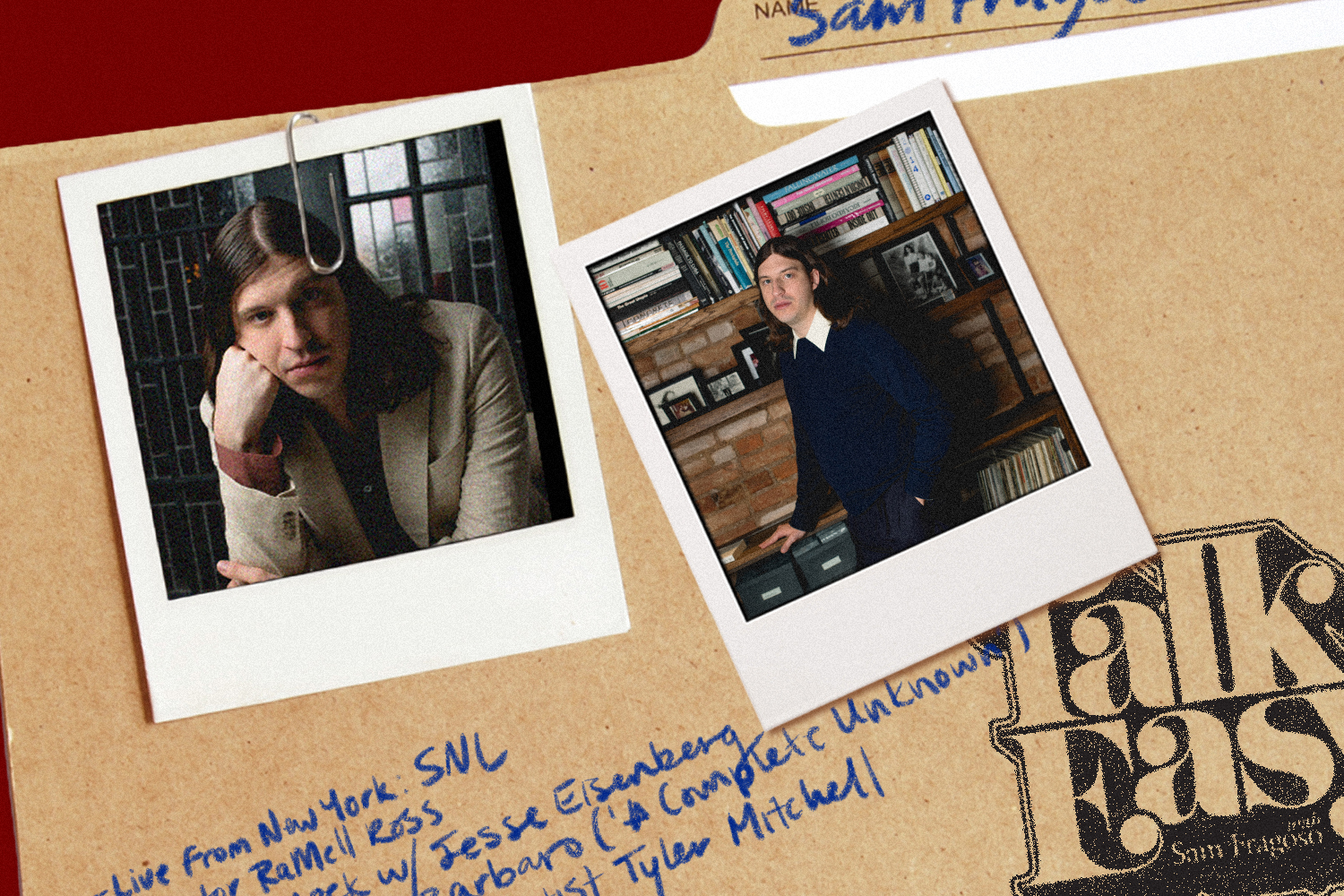
Fragoso enrolled in San Francisco State University, but eventually dropped out to pursue industry work full time, parlaying his writing into a gig programming for one of San Francisco’s historic movie theaters, the Roxie, as the creative director.
As he diplomatically puts it, the job was “a lot for a 21-year-old to help an eight-decade-old institution.” But it also honed his penchant for tireless research and insightful interviews. Among a litany of responsibilities at the Roxie, Fragoso conducted near-nightly onstage Q&As with filmmakers and other special guests, a sort of proto-Talk Easy that would serve as both his 10,000 hours and proof of concept for a long-form, interview-based show.
See You in the…Podcasts?
Podcasting was a natural evolution for Fragoso, a consolidation of years of journalism and a knack for interviewing. “[Talk Easy] sits at the intersection of live, on stage, in front of people and also the journalistic things required in doing a magazine profile, and the research required to do that well,” he says. “The show is always trying to fold those two things together.”
Breaking into the landscape nearly a decade ago, however, proved to be an entirely different beast. While Fragoso jokes that he “missed the first wave” of podcasting, Talk Easy, launched in 2016, predates the pump of hundred-million-dollar Spotify contracts, gun-for-hire producers and millions of daily active users intimately familiar with the podcast app icon.
Nevertheless, there was a perceived avenue for the show. “I still thought I could do a thing that was a little bit different,” he says. “My print interviews were different — I got a lot of work because of some of the early interviews I did that were compelling in different ways.”
Connections Editor Wyna Liu Can Make or Break Your Day
The exasperating “New York Times” puzzle has become a sensation. Liu is just as surprised as anyone.The network and street cred he had built up over the years helped, too. He booked Don Cheadle for the inaugural episode. Similarly prolific guests soon followed, a roster driven more by what Fragoso thought would be the most interesting conversation (and, at the time, who was bookable) than an inherent connection to film. Musician Mac DeMarco was the guest for episode eight. Basketball legend Spencer Haywood was nine. A hundred episodes in, Talk Easy’s archives included Alan Arkin, Norman Lear and recent Oscar winner Sean Baker.
Significant in the podcast’s trajectory was the COVID-19 pandemic, a period which proved a particular point of transition and an important one to Fragoso. As he explains, “Having a Noam Chomsky on, having Liz Gilbert on, Beto O’Rourke, and Dr. Ashish Jha, one of the leading experts of COVID at the time, come on five times in two years — that was the change. It also was the change in the spirit of the show. I just wanted it to meet the moment.”
The podcast has only expanded its scope since then. “We’re an arts and culture show, but I think the term ‘culture’ is so much more expansive than it was when I started the podcast,” he says. “Culture now includes politicians. Culture now includes Ezra Klein. Culture now includes Ta-Nehisi Coates.”
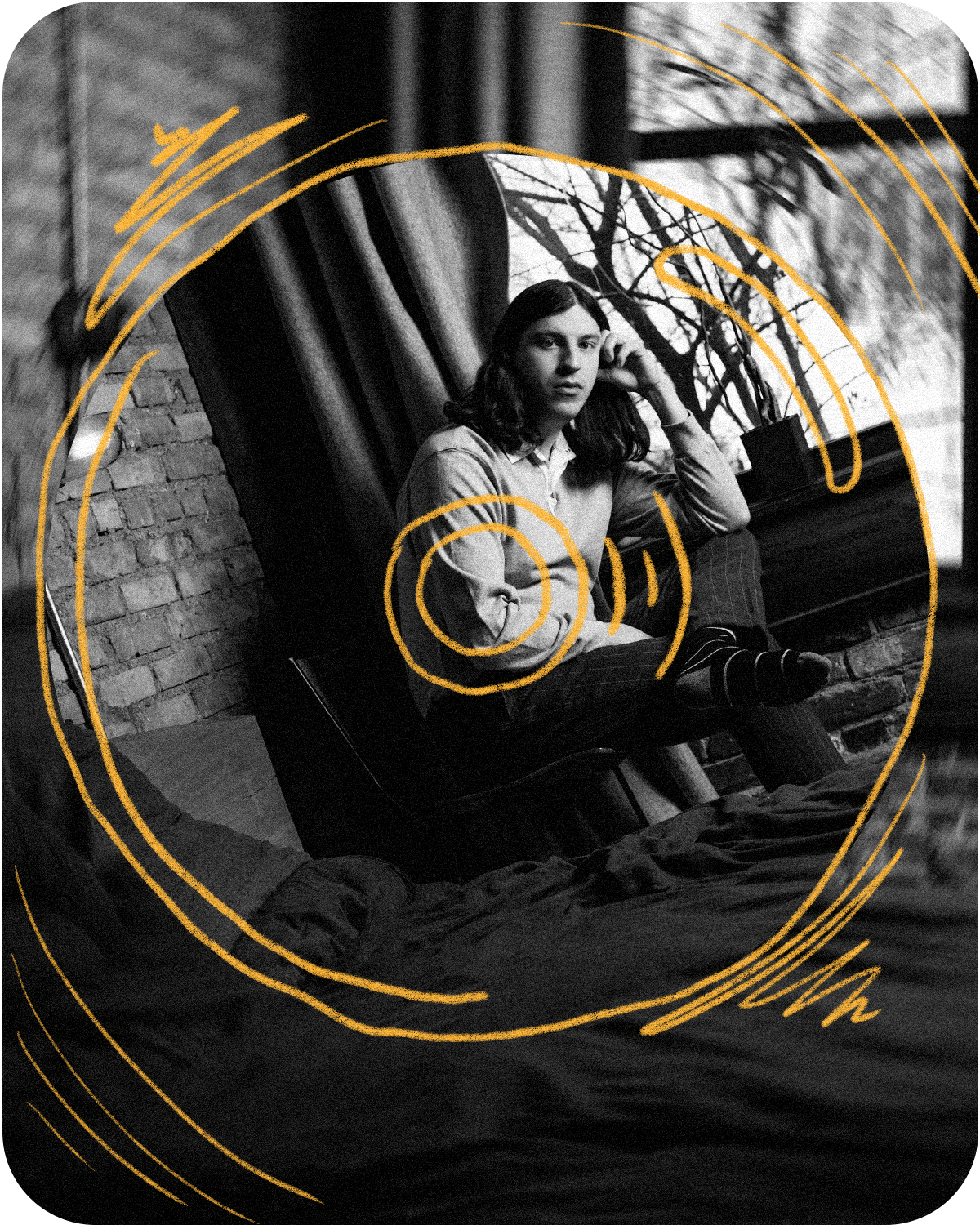
New Success, Same Existential Questions
While Talk Easy is receiving more attention than ever, Fragoso admits that it’s been an arduous endeavor, one filled with credit card debit and years of toiling in obscurity. A decade in, he doesn’t see the industry getting any easier, saying that the signs are “almost all negative.”
Take the current streaming system: great for distribution, but not so much for actually supporting podcasts like his. Like many creators, Fragoso has complicated feelings about the matter, in between the push to make his work accessible and the realities of running a business. “I don’t think anyone in audio that’s putting in the immense amount of time and labor required to make a good thing would tell you it’s great that people can download and experience your product for free. Just ask musicians.”
Closer to the show’s specific lane, another macro issue: no one seems to want to go to the movies anymore. Box-office numbers are massively down from before the pandemic and look to remain that way. At-home streaming is at an all-time high. Fragoso suspects that stiff competition from smaller screens are contributing to this decline. “People are like, ‘Oh, The Brutalist is three and a half hours long,’ and you then look at their daily screen-time report: six hours of next to nothing.” Solutions are similarly murky.
I don’t think anyone in audio that’s putting in the immense amount of time and labor required to make a good thing would tell you it’s great that people can download and experience your product for free.
– Sam Fragoso
And then there’s the internal push and pull that comes with a rising star, especially as a public-facing persona. Courting an internet audience raised in the age of parasocial relationships, there’s some navigating around what should or shouldn’t be shared with the thousands, potentially millions of listeners, especially for a self-described “private person” like Fragoso.
“I do a lot of writing and thinking and researching to make sure when I get into the room with someone I’m doing the best possible job to tell their story in a way that is clear and empathetic and interesting,” he says. “There’s not a lot of room in my mind to say, ‘Let me tell you about the three nights I played basketball this week.’”
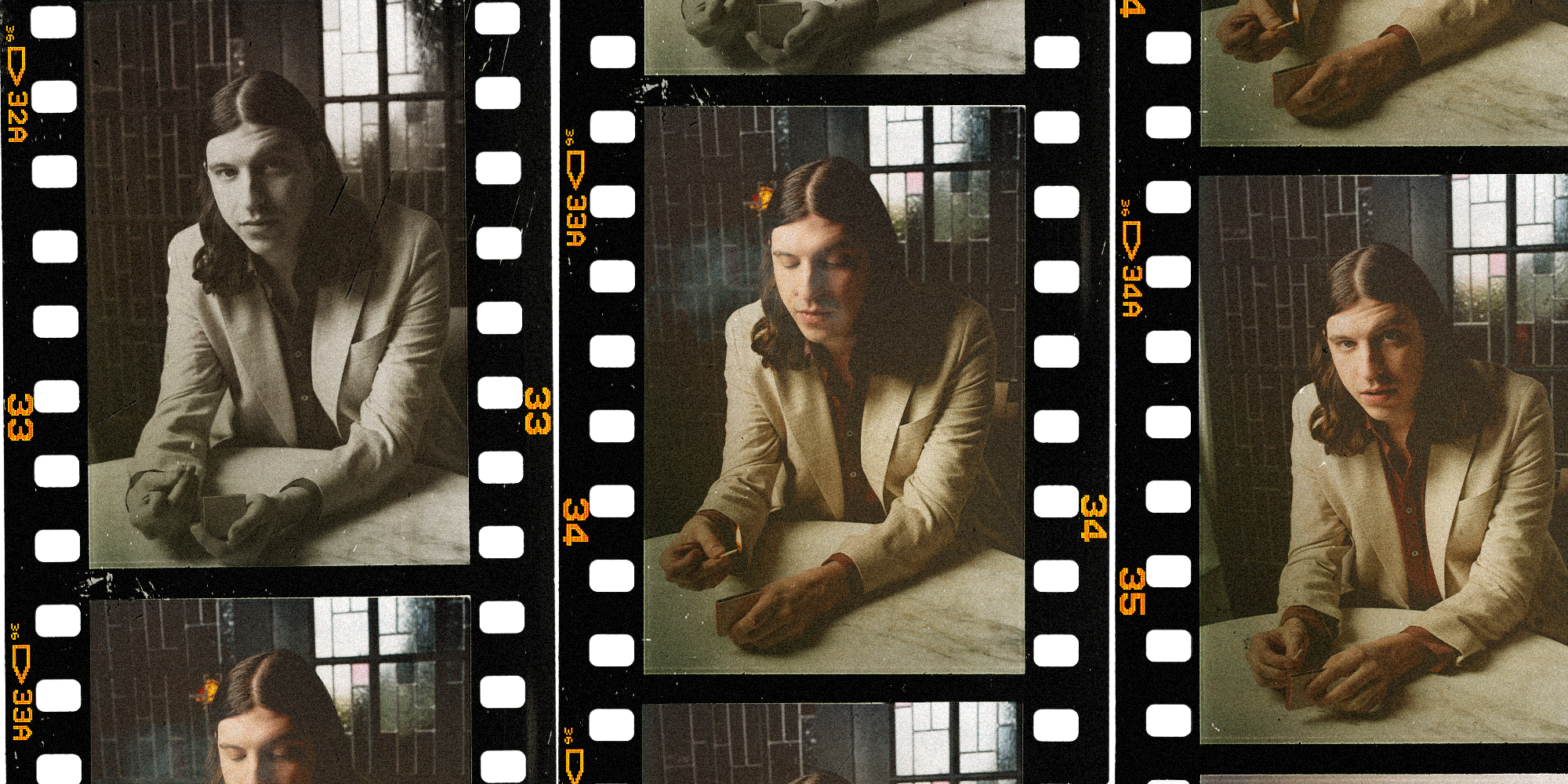
10 Years Down, 30 Years Old
Still, with 15-odd years of industry work and nearly 10 of Talk Easy under his belt, Fragoso is inclined to be grateful for the opportunity to pursue what he loves, especially when there’s an engaged audience responding to the work. “It’s hard to let those small, petty things get in the way of that,” he says. “They’re just not loud enough.”
One thing is abundantly clear: Fragoso loves the work. He is giddy about the prospect of trying new types of episodes — conceptual, “idea-driven portraits” that tackle broader issues in the culture, about the attention economy or the wildfires that ravaged Los Angeles. He’s got special plans for the 500th episode, now only a few dozen away, as well as the 10th anniversary. All soon to come. For now, you can expect more of the same — weekly, hour-long interviews every Sunday that meet you where you are.
Sam and I chatted before the Oscars, so naturally I asked him for predictions. As it turns out, the academy agreed with one of his main takes, that Mikey Madison’s performance in Anora was the strongest of the year. As he put it, “When we look back five years from now, we’re going to go, ‘That was a generational talent in the making.’ And I’m not just saying that because she came on Talk Easy.”
Given his track record, I’m inclined to believe him.
Photography: Anna Garbowska for InsideHook
